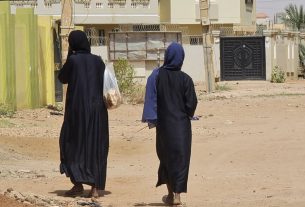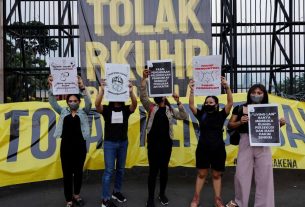From fleeing conflict to making a new start in his host country, Wajeeh faced the same challenge most refugees face – securing an income for his family.
With EU humanitarian funding, NRC helped Wajeeh to obtain the legal documents he needed to remain in Jordan, send his children to school, and establish his mushroom business.
Assistance helped him ratify his marriage, register his 3 children born in Jordan, and establish paternity for 2 children born in Syria.
Wajeeh posing proudly in front of his academic certificates.
© Tina Abu-Hanna/NRC
When Wajeeh, now 52, and his family fled Syria, his main concern was ensuring enough food on the table.
“We remained in Zaatari Refugee Camp for 15 days before moving to the host community,” he says. “We left the camp in a terrible financial and psychological state.”
The detrimental financial situation forced Wajeeh to keep 3 of his eldest children out of school for a short period to help provide for the family. “All my children were school-age at the time, and I couldn’t send any of them to school in the beginning. There were other priorities such as food and water.”
“We had to find a source of income to survive in Jordan. Job opportunities for a person my age dwindle. It becomes more difficult to get work.”
Wajeeh’s family settled in Irbid in the north of Jordan. His children eventually returned to school, but their financial situation remained precarious.
With an unquenchable thirst for knowledge and determined to find a job, Wajeeh enrolled in multiple courses to expand his skillset.
“I hold a doctorate from the University of Damascus,” he says. “In Syria, I worked in both academia and trade.”
“Within 10 years in Jordan, I’ve been able to secure various academic certificates,” smiles Wajeeh, gesturing to the certificates hanging on his living room wall.
Sprouting knowledge
The garden that encircles Wajeeh’s home overflows with greenery. From arching evergreen olive and loquat trees to tiny strawberries peeking through delicate leaves, his garden radiates life.

Syrian refugee Wajeeh is working on agricultural projects to secure an income for his family in Jordan.
© Tina Abu-Hanna/NRC
In a small shed next to the garden, sack upon sack of organic fertiliser sits in the cool darkness. Bold lettering spells out “Dr Wajeeh Al Barqawi” in Arabic.
During his search for a sustainable source of income, Wajeeh settled on growing and producing mushrooms at home after researching the needs of the community.
With a 50 Jordanian Dinar investment (approximately €70) and a small space above his kitchen cabinets, Wajeeh embarked on an agricultural adventure.
“I tried it on a small scale with minimal funding,” he says. “I only spent about 50 Jordanian Dinar on my pilot project.”
“Producing mushrooms is a financially lucrative industry because they require little care. I was able to turn a profit within 45 days with my nominal investment.”
After this initial success, business for Wajeeh boomed.
Bloom
“I began to develop my project and spread the word. In a year, we were able to market the idea across the city.”
“Because growing mushrooms requires such a small amount of effort, and because it suits a variety of lifestyles, I began to run training sessions on how to cultivate and produce them.”
Wajeeh did not stop there.
“Looking further ahead, and more importantly, recycling what remains after harvesting mushrooms is key,” he says. “Mushroom waste is so rich in oxygen and other essential for the soil, that it is an excellent, natural fertiliser.”
“This is a low-cost, organic substitute to what is available in the market, which is necessary, especially considering the current economic climate.”
“Taking it even one step further, we began to look into alternatives for farmers that would benefit them, decrease production expenses, and save water.”
“Our research culminated in the manufacture of a natural fertiliser that requires less water and increases crop yield.”
With the support of a local start-up incubator, Wajeeh and his team are hoping to develop this project further and begin production on a large scale.
Story by Tina Abu-Hanna, Communications Coordinator, Norwegian Refugee Council Jordan.
Publication date: 13/12/2022



